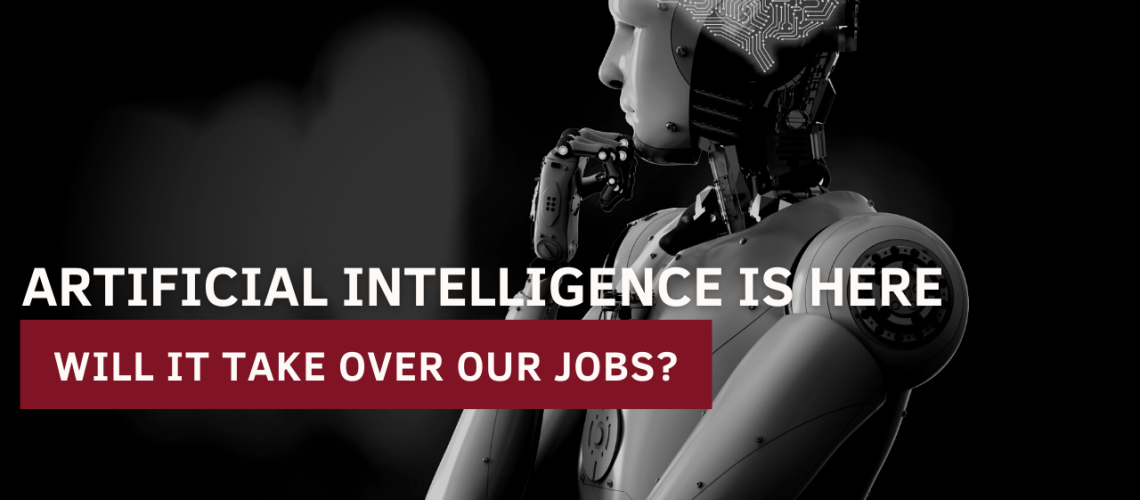By Dr. Salam Slim Saad
Artificial Intelligence (AI) has been a buzzword in the business world for years now, and its impact is only getting stronger. From chatbots to image recognition software, AI technology is changing the way businesses operate. Many industry leaders predict that AI will transform nearly every aspect of modern-day commerce – from customer service to supply chain management – as we know it today.
In this blog post, we’ll explore how artificial intelligence is already transforming businesses, the benefits and potential risks of implementing AI technology into your company’s operations, and some guidelines on how you can successfully integrate AI into your organization. So buckle up and get ready to discover how AI could revolutionize your business!
What is Artificial Intelligence?
Artificial Intelligence (AI) refers to the development of computer systems that can perform tasks typically requiring human intelligence, such as visual perception, speech recognition and decision-making. AI is a broad field that encompasses many different sub-disciplines including machine learning, natural language processing, robotics and more.
At the core of AI lies machine learning algorithms – which enable computers to learn from data and improve their performance over time without being explicitly programmed. These algorithms allow machines to recognize patterns in data and make predictions based on those patterns.
While there are many exciting possibilities for AI in business – from automating routine tasks to improving customer service – it’s important also to acknowledge some concerns around its implementation. Some fear that AI could put jobs at risk or be used for unethical purposes.
According to IBM, Artificial intelligence has undergone many cycles of propaganda over the years, but OpenAI’s ChatGPT appears to mark a turning point for skeptics. In the past, breakthroughs were in computer vision, but now they are in natural language processing. As well as language, generative models can learn a variety of other data types as well, including software code, molecules, natural images, and more.
How AI is Already Transforming Businesses
There’s a lot of talk about AI and its potential to enhance business-but what’s the general outlook?
- 91.5% of leading companies invest in AI continuously, according to a WaveStone report
- According to Gartner, customer satisfaction in organizations using AI is expected to grow by 25% by 2023
- In 2023, 44% of private sector companies plan to invest in AI systems, according to IT analyst firm Info-Tech Research Group
- 35% of companies are using AI, and 42% are exploring its implementation, according to a TechJury article,
The adoption of artificial intelligence in business is widespread, but most companies don’t use it to dominate the world, but to automate processes, improve customer service and personalization, increase output, and analyze data instead. In general, businesses aim to gain a competitive advantage.
AI is already transforming businesses in a variety of ways. One major area where AI is making an impact is customer service. Chatbots, powered by AI, can help businesses provide 24/7 support to their customers without the need for human intervention. This not only saves time and money but also improves customer satisfaction.
Another way that AI is transforming businesses is through predictive analytics. By analyzing large amounts of data, AI algorithms can identify patterns and make predictions about future trends or outcomes. This helps businesses make better decisions regarding product development, marketing strategies and more.
In the healthcare industry, AI-powered tools are being used for medical diagnosis and treatment recommendations. Machine learning algorithms can analyze patient data like medical history, symptoms and test results to assist doctors in making accurate diagnoses or suggesting treatments.
AI is also transforming manufacturing processes by automating tasks such as quality control checks on production lines or predicting machine failures before they occur. This leads to increased efficiency and reduced downtime for companies.
The financial sector has also embraced the use of AI with chatbots answering customer queries about account balances or transactions while fraud detection systems monitor accounts looking for unusual activity.
In Retail, AI is being used to create personalized shopping experiences and to recommend products. For example, Amazon’s recommendation engine uses AI to suggest items that you may be interested in based on your previous purchases.
The potential uses of artificial intelligence are vast across many industries – from improving customer experience to streamlining business operations – there’s no doubt that it will continue to transform businesses far into the future.
The Benefits of AI for Businesses
Artificial Intelligence (AI) has brought significant benefits to businesses in various fields. Here are some of the most notable advantages:
- Increased Efficiency: AI can automate repetitive and time-consuming tasks, allowing employees to focus on more critical business operations. This results in increased productivity and efficiency.
- Improved Customer Experience: AI-powered chatbots and virtual assistants enable 24/7 customer service, responding to queries faster and accurately than humans would be able to do.
- Enhanced Decision-Making: With AI’s ability to analyze large amounts of data quickly, it can provide valuable insights that aid decision-making processes for businesses.
- Cost Reductions: By automating certain business functions, companies can reduce costs significantly while maintaining high-quality standards.
- Competitive Advantage: Businesses that adopt AI early gain a competitive edge over their peers by being at the forefront of technological innovation.
- Personalization: With access to vast amounts of customer data, AI enables businesses’ personalized marketing strategies tailored explicitly for individual customers or target audiences.
The integration of Artificial Intelligence into business operations is vital for any company seeking growth and sustainability in today’s highly competitive market environment. The benefits mentioned above illustrate how implementing this technology could lead not only to improved operational efficiency but also give businesses an overall advantage over their competitors while keeping up with changing customer demands better than ever before!
Pros and Cons of AI in the Workplace
The rise of artificial intelligence (AI) is transforming the workplace. With AI-powered automation, businesses can boost efficiency and productivity, while reducing costs. However, there are also some risks associated with AI in the workplace. Here are some pros and cons of AI in the workplace:
Pros:
- Artificial intelligence can boost efficiency and productivity in the workplace.
- AI-powered automation can help businesses to reduce costs.
- Artificial intelligence can help businesses to improve decision-making processes.
- Artificial intelligence can assist businesses in managing and analyzing data effectively.
- Artificial intelligence can help businesses to develop new products and services faster.
- Artificial intelligence can improve customer service by providing quicker resolutions to queries and problems.
Cons:
- There is a risk that artificial intelligence could lead to job losses as automated systems take over tasks previously carried out by human workers.
- There is a risk that businesses will become increasingly reliant on artificial intelligence, which could lead to them becoming less innovative overall.
- There is a risk that artificial intelligence could be used for unethical purposes, such as biased decision-making or discrimination against certain groups of people
Will artificial intelligence take over jobs?
One of the most common concerns regarding artificial intelligence is whether it will take over jobs. The fear is that AI-powered machines and software will replace human workers, causing widespread unemployment and economic disruption.
While it’s true that some jobs may become obsolete as a result of automation, there are also opportunities for new types of work to emerge. For example, businesses may need more workers who can design and maintain AI systems or analyze data generated by these systems.
Additionally, AI has the potential to improve working conditions by taking on repetitive or dangerous tasks that can be harmful to humans. This could lead to a shift in job roles rather than outright replacement.
It’s worth noting that not all industries will be equally affected by AI. Some sectors such as healthcare, education and creative fields require complex decision-making skills and emotional intelligence which machines cannot replicate effectively.
While there may be shifts in employment patterns due to advancements in technology like AI, predicting exactly how it will affect the labor market remains uncertain.
Written By Dr. Salam Slim Saad



